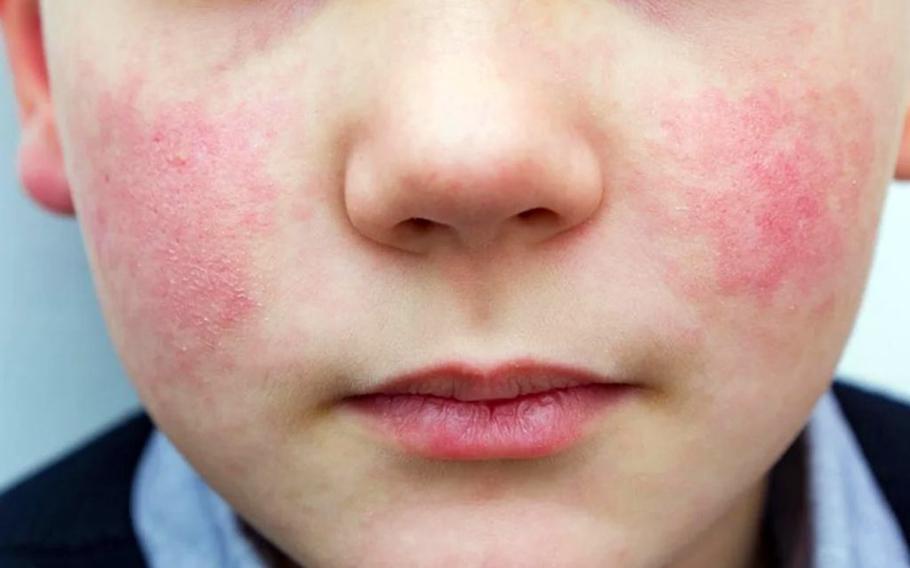
Parvovirus B19 usually shows mild flu-like symptoms, such as fever, headache, cough and sore throat as well as a distinctive slapped cheek rash on the face in children and joint pains in adults. (U.S. Army)
TOKYO — The Japanese Health Ministry has reported higher than expected numbers of parvovirus B19 infections in and around Tokyo, according to an alert from U.S. Army Medical Department Activities-Japan.
The respiratory disease spreads easily through coughs and sneezes, the department announced Friday on Facebook. It usually shows mild flu-like symptoms, such as fever, headache, cough and sore throat as well as a distinctive slapped cheek rash on the face in children and joint pain in adults.
Reports of parvovirus B19 are “much higher compared to the average in the same period in the past five years,” according to the weekly report posted on Japan’s National Institute of Infectious Diseases website.
The data released Friday said 2,806 cases were reported in 3,000 selected pediatric medical facilities in Japan, with the rate of 0.89 cases per facility, between Nov. 25 and Dec. 1.
Saitama prefecture recorded the highest rate of infection with 569 cases and 3.49 cases per facility, followed by Tokyo with 796 cases and 3.02 cases per facility and Kanagawa prefecture with 499 cases and 2.17 per facility, according to the report.
Tokyo and Kanagawa prefectures are home to several U.S. military installations, including Yokota Air Base, Camp Zama, Naval Air Facility Atsugi and Yokosuka Naval Base.
There is no specific treatment for parvovirus B19 and most people recover on their own within a few weeks, according to the Army medical department’s post. It can be a danger to pregnant women and those with preexisting conditions and compromised immune systems, according to the CDC.
Pregnant women are highly warned about the outbreak since the virus may have serious implications, such as miscarriages, according to the CDC.
The symptoms are mild but patients with leukemia or other cancers, organ transplant, HIV infection and blood disorders are at an increased risk.
Symptoms appear 10-20 days after exposure, so the virus tends to spread by the time symptoms show, according to the Japan Health Ministry website.
The Army advises washing hands often with soap and water, especially after coughing, sneezing, blowing your nose, and before eating, or touching your eyes, nose or mouth. It also said people should stay home when they are sick.
Cases of parvovirus B19 infection were increasing in the U.S. in the summer, according to an Aug. 13 CDC health advisory. It stated that cases were on the rise in Europe in the first quarter.